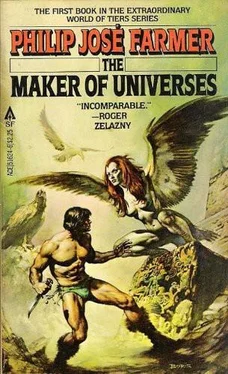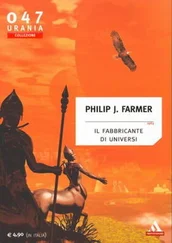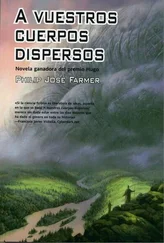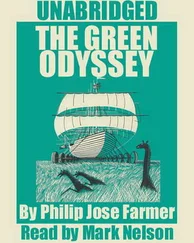Wolff waited for several days to rest and hunt and repair the bows and make new arrows. He also kept a watch for an eagle. He had not been in contact with any since he had talked to Phthie in the ruined city by the river of Guzirit. No green-bodied yellow-headed bird appeared, so he reluctantly decided to enter the jungle. As on Dracheland, a thousand-mile thick belt of jungle circled the entire rim. Within the belt was the land of Atlantis. This, exclusive of the monolith in its center, covered an area the size of France and Germany combined.
Wolff had looked for the pillar on top of which was the Lord’s palace, since Kickaha had said that it could be seen from the rim even though it was much more slender than any of the other monoliths. He could see only a vast and dark continent of clouds, jagged and coiled with lightning. Idaquizzoorhruz was hidden. Nor, whenever Wolff ascended a high hill or climbed a tall tree, could he see it. A week later, the stormclouds continued to shroud the pillar of stone. This worried him, for he had not seen such a storm in the three and a half years he had been on this planet.
Fifteen days passed. On the sixteenth, they found on the narrow green-fraught path a headless corpse. A yard away in the bush was the turbaned head of a Khamshem.
“Abiru could be trailing the gworl, too,” he said. “Maybe the gworl took his jewels when they left von Elgers’ castle. Or, more likely, he thinks they have the horn.”
A mile and a half further on, they came across another Khamshem, his stomach ripped open and his entrails hanging out. Wolff tried to get information out of him until he found that the man was too far gone. Wolff put him out of his pain, noting that Chryseis did not even look away while he did so. Afterward, he put his knife in his belt and held the Khamshem’s scimitar in his right hand. He felt that he would soon need it.
A half-hour later, he heard shouts and whoops down the trail.. He and Chryseis concealed themselves in the foliage beside the path. Abiru and two Khamshem came running with death loping after them in the form of three squat Negroids with painted faces and long kinky scarlet-dyed beards. One threw his spear; it sailed through the air to end in the back of a Khamshem. He plunged forward without a sound and slid on the soft damp earth like a sailboat launched into eternity, the spear as the mast. The other two Khamshem turned to make a stand.
Wolff had to admire Abiru, who fought with great skill and courage. Although his companion went down with a spear in his solar plexus, Abiru continued to slash with his scimitar. Presently two of the savages were dead, and the third turned tail. After the Negroid had disappeared, Wolff came up silently behind Abiru. He struck with the edge of his palm to paralyze the man’s arm and cause the scimitar to drop.
Abiru was so startled and scared he could not talk. On seeing Chryseis step out from the bushes, his eyes bulged even more. Wolff asked him what the situation was. After a struggle, Abiru regained his tongue and began to talk. As Wolff had guessed, he had pursued the gworl with his men and a number of Sholkin. Some miles from here, he had caught up with them. Rather, they had caught him. The ambush had been half-successful, for it had slain or incapacitated a good third of the Khamshem. All this had been done without loss to the gworl, who had cast knives from trees or from the bushes.
The Khamshem had broken away and fled, hoping to make a stand in a better place down the trail—if they could find one. Then both hunted and hunter had run into a horde of black savages.
“And there’ll be more of them soon looking for you,” Wolff said. “What about Kickaha and funem Laksfalk?”
“I do not know about Kickaha. He was not with the gworl. But the Yidshe knight was.”
For a moment, Wolff thought of killing Abiru. However, he disliked doing it in cold blood and he also wanted to ask him more questions. He believed that there was more to him than he pretended to be. Shoving Abiru on ahead with the point of the scimitar, he went down the trail. Abiru protested that they would be killed; Wolff told him to shut up. In a few minutes they heard the shouts and screams of men in battle. They crossed a shallow stream and were at the bottom of a steep, high hill.
This was so rocky that comparatively little vegetation covered it. Along a line up the hill was the wake of the fight—dead and wounded gworl, Khamshem, Sholkin, and savages. Near the top of the hill, their backs against a V-shaped wall and under an overhang formed by two huge boulders, three held off the blacks. These were a gworl, a Khamshem, and the Yidshe baron. Even as Wolff and Chryseis started to go up, the Khamshem fell, pierced by several of the shovel-sized spearheads. Wolff told Chryseis to go back. For answer, she fitted an arrow to her bow and shot. A savage in the rear of the mob fell backward, the shaft sticking from his back.
Wolff smiled grimly and began to work his own bow. He and Chryseis chose only those at the extreme rear, hoping to shoot down a number before those at the front noticed. They were successful until the twelfth fell. A savage happened to glance back and see the man behind him crumple. He yelled and pulled at the arms of those nearest him. These immediately brandished their spears and began running down the hill toward the two, leaving most of their party to attack the gworl and the Yidshe. Before they had reached the bottom half of the hill, four more were down.
Three more tumbled headlong and rolled down with shafts in them. The remaining six lost their zeal to come at close quarters. Halting, they threw their spears, which were launched at such a distance that the archers had no trouble dodging them. Wolff and Chryseis, operating coolly and skilfully from much practice and experience, then shot four more. The two survivors, screaming, ran back up to their fellows. Neither made it, although one was only wounded in the leg.
By then, the gworl had fallen. Funem Laksfalk was left alone against forty. He did have a slight advantage, which was that they could get to him only two at a time. The walls of the boulders and the barricade of corpses prevented the others from swarming over him. Funem Laksfalk, his scimitar bloody and swinging, sang loudly some Yiddish fighting song.
Wolff and Chryseis took partial cover behind two boulders and renewed their rear attack. Five more fell, but the quivers of both were empty. Wolff said, “Pull some from the corpses and use them again. I’m going to help him.”
He picked up a spear and ran at an angle across and up the hill, hoping that the savages would be too occupied to see him. When he had come around the hill, he saw two savages crouched on top of the boulder. These were kept from jumping down upon the Yidshe’s rear by the overhang of the roughly shaped boulders. But they were waiting for a moment when he would venture too far out from its protection.
Wolff hurled his spear and caught one in the buttocks. The savage cried out and pitched forward from the rock and, presumably, on his fellows below. The other stood up and whirled around in time to get Wolff’s knife in his belly. He fell backwards off the rock.
Wolff lifted a small boulder and heaved it on top of one of the great boulders and climbed up after it. Then he lifted the small boulder again, raised it above his head, and walked to the front of the great boulder. He yelled and threw it down into the crowd. They looked up in time to see the rock descending on them. It smashed at least three and rolled down the hill. At that, the survivors fled in a panic. Perhaps they thought that there must be others than Wolff. Or, because they were undisciplined savages, they had been unnerved by too many losses already. The sight of so many of their dead shot down behind them must also have added to their panic.
Читать дальше












